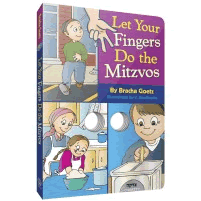I think I was fifteen that summer. I got all dressed up in the nicest dress I had with me. Actually I think it may have been the only dress I had with me. It was a sleeveless blue one, and I was even careful to wrap a crocheted shawl around my arms. Our counselors had told us that there was a big sign in Mea Shearim that said that we had to cover our arms when we were there.
That Saturday morning I got thrown out of the synagogue. The women in the little shul in Mea Shearim started screaming at me and calling me names in a language I didn’t understand. I found out afterwards what they were shouting at me. And, when I found out what the words meant, I realized that they had really made me feel like the low words they were shouting at me. They pushed me out of the shul and chased me away, from Judaism. It hurt a lot. I just kept thinking, “Could this be God’s world?â€
Back at the youth hostel, I curled up in bed and reread the short essay on the application I had written to go on the teen tour to Israel that summer.
Application for U.S.Y. Israel Pilgrimage July-August 1971
I would love to go to Israel. Many people would love to go because of a lifelong dream they have had. When they even say the word, “Israel” something pulls strongly inside them. I respect these people greatly. I would love to feel something and believe in something as strongly as they do. I admire these people – but I don’t share in their understanding.
I feel, somehow, that Israel could help me. I want to be in the spiritual city of Jerusalem. I want to go to the land where dreams are fulfilled. I feel drawn to Israel like a magnet.
When I was in Temple, I saw an old religious man sitting in the back. He was praying with such emotion, such love, that it made my own emotionless state very evident to me. His face was filled with so many years of thought. I want to go to Israel because when I come back and say “Jerusalem” in my prayers – I will really be there – along with the old man in the back.
Then, still not ready to face the world, meaning my friends, I re-read my most recent diary entries:
July 1, 1971
i am here.
i know very strongly inside of me already that Israel and me were made for each other. after we got off the plane, the bus took us straight to jerusalem, straight to the wailing wall and the beautiful night hit me. the Bible actually came alive. it was spectacular.
I belong to this so much. It’s me. Just by being here, I feel creativity growing in me already. Touching the Wall touched something in me that is buried deeply, afraid to come out. Can I find deep within me the strength that helps that Wall to keep standing?
I can hardly believe it’s for real. The Old City looks like a fairy tale village I’ve been dreaming about for years.
july 5, 1971
The big why is hitting me in the face.
i am so spoiled.
Today we saw the memorial to the Holocaust
at Yad Va Shem.
And now we are sitting around the dining area,
complaining about the food
and our hotel rooms.
But that photo of the man with tallis and tefillin praying,
surrounded by laughing Nazi soldiers,
keeps staring at me.
How strong his prayers must have been,
With a feeling that even went beyond death,
can we still have that kind of strength?
july 16, 1971
there is still an ember glowing which i have been trying to smother. but it will just keep on glowing, probably sinking deeper and deeper into my being. is it a sacred part of me? too much for me even to speak about.
july 21, 1971
when i am praying
when i am listening and learning
i feel like myself.
The next entry, written on July 23rd, would be furiously penned. It would be about being thrown out of the first Orthodox shul I ever dared enter, the one in Mea Shearim. After that, there would be no more entries about seeking spirituality in Judaism. Not during the last two weeks of my tour in Israel, and not for years to come. My budding spirituality was replaced by cynicism. I tried to stuff my neshama down – to cushion it from further blows, but it just kept on popping up.
So I searched for spirituality elsewhere. In other religions, in expressive arts, in the vastness of science, in noble humanitarian causes, in romantic relationships with non-Jews, in all kinds of places. Places that wouldn’t judge me superficially, by how I was dressed.
And yet seven years later, after too many degrading experiences that I wish I’d never known, I finally found in Judaism, the spiritual sustenance that I was craving. Back in Israel, I found myself wandering one Shabbos morning to that same synagogue. With long sleeves and stockings, I walked in and poured myself into a prayerbook. The women, seeing my newness, helped me find the right pages. And a few invited me to their homes afterwards, to share their simple Shabbos meals.
Why did I return? Only because nothing else ever fit the same deep way. Nothing else lit up my Jewish soul. No matter how hard I tried, I just couldn’t smother that ember that just kept on glowing in darkness. And it yearned for more. A certain sacred part of me would not go away.
The insatiable longing I had for years found the infinite pleasure it was seeking.
I also found again and again the intolerance and closemindedness that can turn so many away. And we, who have returned, despite this, can try to do all that we can to work for understanding, with all those involved.
I hope that I’d never ever throw a young woman in a sleeveless dress and a crocheted shawl out of an Orthodox shul, but I don’t live in Mea Shearim.
I don’t live in the Garden of Eden, either, though.
There, before we internalized physical desires, our bodies served as the pure garments of our souls. Once we had a taste of self-gratification from the Tree of Knowledge, however, our bodies were no longer perfectly aligned with our spiritual essence. That’s when clothes became necessary, and G-d provided us with the clothes we needed. With self-refinement, our physical bodies can journey back to be in tune with our deepest spirituality.
At fifteen, I really think those women in that shul were trying to teach me this. They didn’t know how, and they sure weren’t helpful, but they tried in their own way.
And all I can do is try in my own way too.
Fragile Wings
Where was the freedom promised?
Where was the open sky?
Come on and meet the prisoner,
Who thought that she could fly.
Religious girls in summer,
Blouses buttoned high.
I’d see long skirts, with stockings,
As I would pass them by.
I’d laugh inside me, mocking,
The girls I used to see.
Those girls are missing so much.
How trapped could people be?
But how could I have known then,
Jogging through summer rain,
I strode past them, uncovered,
In years before the pain.
Those girls kept their wings hidden,
And my own wings got crushed.
Why did I jump too quickly?
Why was my childhood rushed?
Crystalline wings they treasured,
Even at that young age.
My wings, I learned, were fragile,
When I hit bars inside the cage.
My wings have long been broken.
Can they still be healed?
Those girls now fly past rainbows.
Tell me, how does it feel?
Inside, I’m thrashing lamely.
Can I get free?
Now that I see the picture –
Reversed, ironically.
Where was the freedom promised?
Where was the open sky?
Here I am. Meet the prisoner,
Who thought that she could fly.
_______________________________________________________________________
Bracha Goetz is the Harvard-educated author of ten children’s books, including Aliza in MitzvahLand, What Do You See at Home? and The Invisible Book. To enjoy Bracha’s presentations for both women and children, you’re welcome to email bgoetzster@gmail.com.


